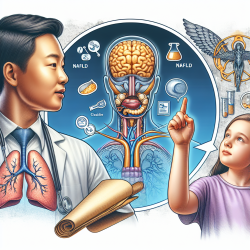Introduction
As a practitioner in the field of speech-language pathology, it is crucial to continuously refine and enhance our skills to provide the best possible outcomes for the children we serve. A recent research study titled Job characteristics and personality change in young adulthood: A 12-year longitudinal study and replication offers valuable insights that can be applied to our practice. This study highlights the relationship between job characteristics and personality changes over time, which can inform how we approach our roles and interactions with children.
Understanding the Study
The study conducted by Zheng et al. (2024) examined the impact of 151 objective job characteristics on personality levels and changes over a 12-year period. By utilizing data from the Occupational Information Network (O*NET), the researchers developed an aggregated job characteristics score to predict personality levels at baseline and their changes over time. The study found significant associations between job characteristics and personality traits such as openness, conscientiousness, and extraversion.
Key Findings and Their Implications
The study revealed that job characteristics have a stronger prediction for personality intercepts than slopes, indicating that certain job characteristics can influence personality traits more at the baseline level than over time. Notably, the study found that the level of openness had the strongest association with job characteristics, followed by conscientiousness and extraversion.
For speech-language pathologists, these findings suggest that the way we structure our work environment and the characteristics of our job can significantly influence our personality traits. By understanding and leveraging these characteristics, we can enhance our ability to adapt and grow in our roles, ultimately leading to better outcomes for the children we work with.
Practical Applications for Speech-Language Pathologists
- Fostering Openness: Encourage a work environment that promotes curiosity and openness to new ideas. This can be achieved by incorporating diverse therapeutic approaches and staying updated with the latest research and techniques in the field.
- Enhancing Conscientiousness: Develop structured routines and clear goals for therapy sessions. This can help in maintaining a high level of organization and attention to detail, which are crucial for effective therapy outcomes.
- Promoting Extraversion: Create opportunities for collaborative work and peer interactions. Engaging with colleagues and participating in team-based projects can enhance communication skills and foster a supportive work environment.
Encouraging Further Research
While this study provides valuable insights, it also highlights the need for further research to explore the prospective validity of job characteristics across a wider range of occupations and age groups. As practitioners, we can contribute to this body of knowledge by engaging in research initiatives and sharing our experiences and findings with the broader community.
Conclusion
By understanding the relationship between job characteristics and personality changes, speech-language pathologists can make informed decisions to enhance their professional growth and improve therapy outcomes for children. Implementing the findings from this study can lead to a more dynamic and effective practice.
To read the original research paper, please follow this link: Job characteristics and personality change in young adulthood: A 12-year longitudinal study and replication.










